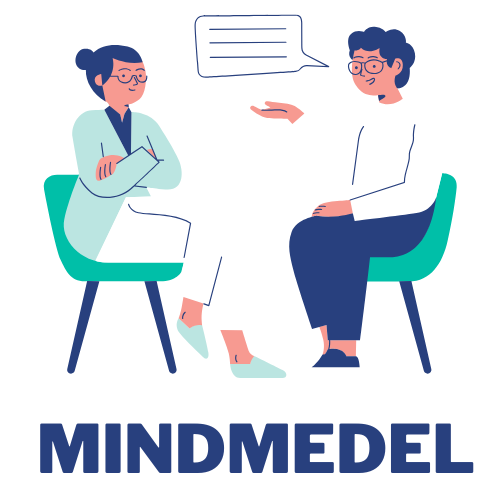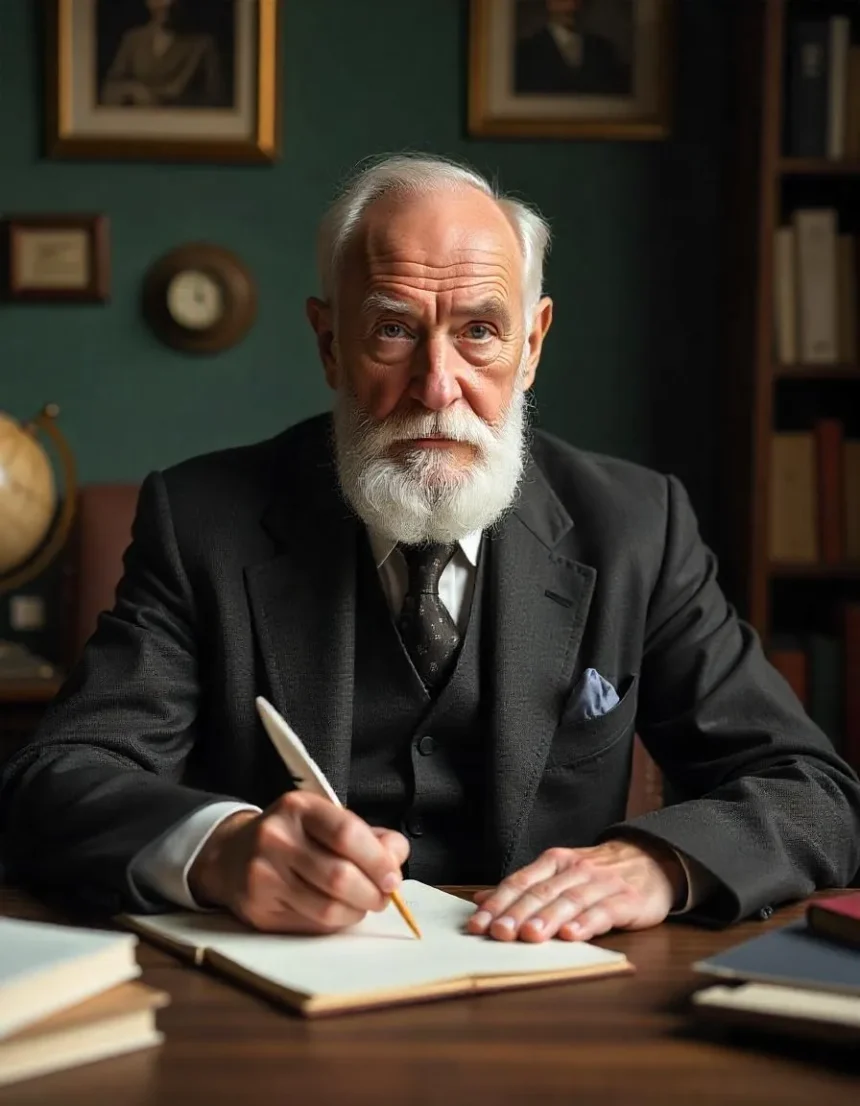Intro of The Fascinating Story of Sigmund Freud Biography
The Fascinating Story of Sigmund Freud Biography life is nothing short of extraordinary a blend of intellect, controversy, and groundbreaking discoveries. Known as the father of psychoanalysis, Freud’s ideas transformed psychology and influenced the way we think about the human mind. But to truly understand his theories, we must explore the man himself.
What shaped Freud? How did his upbringing and personal relationships inspire concepts like the Oedipus complex or the structure of the psyche? This blog dives deep into Sigmund Freud’s biography, shedding light on the factors that influenced his revolutionary ideas.
Key Takeaways
- Freud’s early life deeply impacted his psychological theories.
- His relationship with his parents shaped concepts like authority and attachment.
- Childhood friendships and dynamics were the foundation of his intellectual curiosity.
- Freud’s resilience in pursuing controversial theories changed the course of psychology.
- By exploring Freud’s biography, we uncover the roots of modern psychoanalysis.
Sigmund Freud’s Biography – A Life That Changed Psychology Forever
His Birth and Early Beginnings
Sigmund Freud was born on May 6, 1856, in Freiberg, Moravia (modern-day Příbor, Czech Republic). He was born into a Jewish family during a time of political and social upheaval in Europe. This historical context played a crucial role in shaping his worldview, as anti-Semitic attitudes limited opportunities for people like Freud.
- Cultural Context:
His upbringing in a region undergoing rapid industrial and social change gave Freud a sense of resilience and adaptability. - Key Traits of Young Freud:
From an early age, he displayed a keen intellect, curiosity, and a love for literature and science.
Freud’s Childhood – The Building Blocks of Genius
Freud’s childhood laid the foundation for his later intellectual pursuits. Growing up in a family of modest means, he faced challenges that fueled his ambition and determination.
- Family’s Financial Struggles:
Freud’s family moved to Vienna when he was four years old due to financial difficulties. These early hardships taught him discipline and perseverance.
Father’s Role in Shaping Freud’s Worldview
Jakob Freud, a wool merchant, was a strict yet supportive figure in Sigmund’s life. His stern demeanor and patriarchal authority left a lasting impression on Freud’s understanding of paternal relationships and power dynamics.
Mother’s Unconditional Love
Amalia Freud, on the other hand, was warm and affectionate. Her favoritism toward Sigmund made him feel special and nurtured his intellectual development. This intense bond with his mother inspired his later theory of the Oedipus complex.
Relationship Dynamics with His Parents
The relationship Freud had with his parents influenced many of his psychological theories:
- Jakob Freud’s Parenting Style:
A source of authority and stability, Jakob’s influence shaped Freud’s concept of the superego. - Amalia Freud’s Affection:
Her nurturing presence inspired Freud’s exploration of emotional attachment and childhood dependency. - Freud’s Perception of Power Dynamics:
Observing the interplay of authority and affection in his home became a template for his psychoanalytic models.
Siblings, Friends, and the Network That Shaped Freud’s Thought
Freud’s Siblings – Rivals or Companions?
As the eldest of eight children, Freud often found himself in a position of responsibility. While his siblings looked up to him, rivalries also played a role in shaping his competitive nature.
- Sibling Influence:
Freud’s interactions with his siblings highlighted themes of rivalry and familial roles, which later appeared in his psychoanalytic theories.
Childhood Friends and Intellectual Sparks
Freud’s childhood friends provided intellectual companionship and debate, sparking his curiosity about the mind and human behavior.
- Key Friendships:
Freud maintained a circle of intellectually curious peers who influenced his early ideas. - Impact on Psychology:
These friendships reinforced his belief in the power of dialogue, a cornerstone of psychoanalysis.
The Influence of Childhood on Freud’s Theories of Personality
Early Fascination with the Human Mind
Even as a child, Freud was fascinated by dreams, human emotions, and the workings of the mind. Stories from his youth reveal his budding interest in understanding what drives human behavior.
- Anecdotes of Curiosity:
Freud’s observations of family dynamics inspired his lifelong quest to uncover the hidden layers of the psyche.
Childhood Experiences and Freud’s Psychoanalytic Ideas
Freud’s upbringing directly influenced some of his most groundbreaking concepts:
- Id, Ego, and Superego:
These ideas stemmed from Freud’s experiences with authority, self-discipline, and moral reasoning in his home. - Oedipus Complex:
The intense bond with his mother and rivalry with his father shaped this iconic theory.
Freud’s Academic Journey and Rise to Fame
Educational Milestones
Freud’s academic brilliance led him to study medicine at the University of Vienna in 1873. His early fascination with the human brain and nervous system paved the way for his career in psychoanalysis.
Early Challenges and Breakthroughs
Freud faced skepticism from the academic community when he introduced his theories. However, his perseverance paid off, and he eventually gained recognition as a pioneer of psychology.
Legacy of Sigmund Freud’s Biography in Modern Psychology
Revolutionary Theories Born from a Unique Life
Freud’s contributions to psychology include concepts like the unconscious mind, dream interpretation, and defense mechanisms.
Criticism and Controversy
Despite his revolutionary ideas, Freud’s work has faced criticism for being unscientific. However, his influence on therapy and mental health remains undeniable.
Informational Tables to Deepen Understanding
Timeline of Freud’s Early Life
| Year | Event | Relevance |
| 1856 | Born in Freiberg | Early roots of his journey. |
| 1860 | Moved to Vienna | Cultural and academic growth. |
| 1873 | Began medical studies | Foundation for psychology. |
Major Theories and Their Influences
| Theory | Biographical Influence |
| Oedipus Complex | Relationship with his mother. |
| Id, Ego, Superego | Family dynamics and authority. |
Why Sigmund Freud’s Biography Still Inspires Curiosity Today
Connecting Freud’s Life to Our Own
Freud’s struggles and triumphs mirror the challenges many face in pursuing their dreams. His theories encourage introspection and self-discovery.
How Freud’s Ideas Shape Psychology Today
Modern therapy owes much to Freud’s work, from the focus on the unconscious mind to the value of discussing emotions openly.
Conclusion
Sigmund Freud’s biography offers invaluable insights into the man who forever changed psychology. From his humble beginnings to his groundbreaking discoveries, Freud’s life is a testament to the power of curiosity and resilience. Explore more about Freud’s legacy and uncover how his ideas continue to shape our understanding of the human mind.





